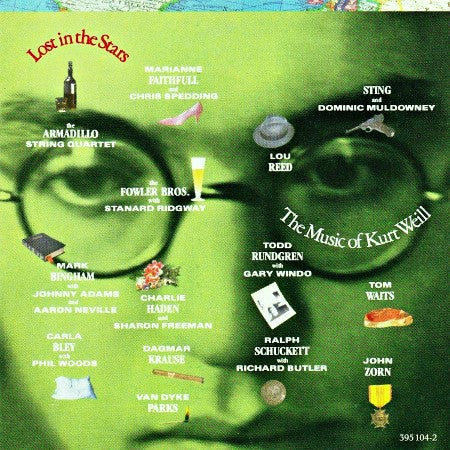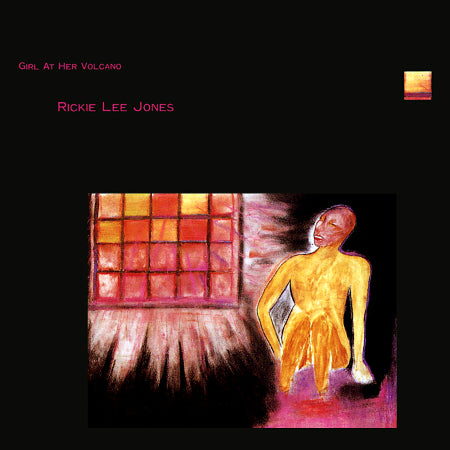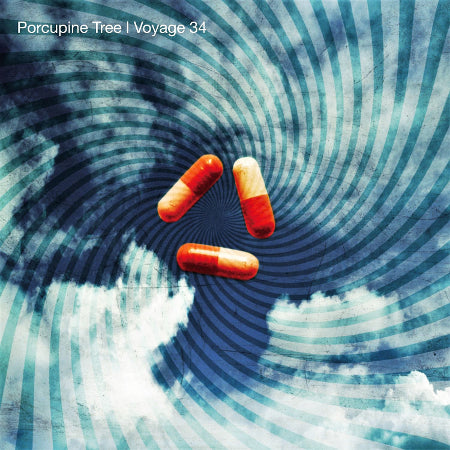This issue, I’m taking a listen to some digital downloads I’ve recently acquired. These include some interesting catalog albums that I’ve either never had on compact disc or any digital format, or that maybe I once had, but have long since disappeared from my music collection. Or, where I’ve basically given up trying to find a mint-condition physical copy. Back in the day, I had a much more liberal approach to granting access to my music collection to friends, family, and co-workers, and consequently over the years, quite a few titles have left the collection and never returned. Or, they’ve been returned in less-than-playable condition – for example, a lot of the discs my kids borrowed had the appearance of having been used as drink coasters, with the playback side generally scratched beyond usability. At least for ripping, anyway!
The digital downloads I’m writing about are all CD-quality files (the Porcupine Tree title is 24-bit), but the sound quality is uniformly superb and dynamic for each one. My tastes sometimes run to the eclectic, but hopefully you’ll find something of interest here.

Lost In The Stars: The Music of Kurt Weill (Hal Willner, executive producer)
When Hal Willner died two years ago, he left behind a storied legacy, having produced albums from the likes of Lou Reed, Marianne Faithfull, Bill Frisell, Gavin Friday, Lucinda Williams, Laurie Anderson, and even Alan Ginsberg. He also spent almost four decades as the sketch-music director for Saturday Night Live. Perhaps the greatest notice and acclaim he received was for a series of increasingly bizarre concept and tribute albums he produced that were scattered over a period of a couple of decades. These started in 1981 with Amarcord Nino Rota, a tribute album to Italian composer Nino Rota. It featured a diverse set of interpretations of Rota’s film music for Federico Fellini, performed by artists including Wynton and Branford Marsalis, Bill Frisell, Carla Bley, Steve Lacy, and for a real twist, Debbie Harry and Chris Stein of Blondie. That twist became more pronounced on his next album, 1984’s That’s The Way I Feel Now: A Tribute to Thelonious Monk, where the performances got much more bizarre. This album featured a cast that included not only jazz luminaries like Barry Harris and Steve Lacy, but got progressively weirder with artists like John Zorn, Donald Fagen (of Steely Dan), Peter Frampton, Dr. John, and Joe Jackson. And the weirdness continued on, eventually resulting in a string of ten diverse concept albums whose performances ran the gamut from the sublime to the ridiculous.
This album, 1985’s Lost In The Stars: The Music of Kurt Weill, took the weirdness to a whole new level, and it could very well be the best of the bunch. It features performances of Kurt Weill’s classic songs from Broadway and Tin Pan Alley from the most diverse group of artists Willner had yet assembled. These included Lou Reed, Marianne Faithfull, Stan Ridgway (of Wall of Voodoo), Sting, Van Dyke Parks, Richard Butler (Psychedelic Furs), John Zorn, Tom Waits, Todd Rundgren…the list just keeps going. Though it didn’t seem possible, the performances are even more out there than those on the previous two albums!
When Lost In The Stars dropped in 1985, I was working at the southeastern regional headquarters for Eastman Kodak in their art department, which was staffed with an ever-changing assemblage of dopers and dropouts. The only constant was the radio that continually blared loudly in the background and was always set to WRAS Album 88, the station of downtown Atlanta’s Georgia State University. The all-student staff cranked out an endlessly erratic fusion of music choices that ranged from avant-garde jazz to 20th century classical, Broadway show tunes, blues, and tons of alternative rock, frequently mixed up throughout the day. Any album from Hal Willner was a natural fit into their daily programming, and they played tracks from Lost In The Stars consistently for well over a year. The music was getting ground daily into my psyche. I simply had to have the CD!
This is an album of many, many highlights, but it bears repeating – it’s probably not everyone’s cup of tea. Sting’s “The Ballad of Mack the Knife” is surprisingly effective with its accordion and horn accompaniment – it’s been said that his performance on this album secured him the lead in the Frankenstein movie The Bride. Stan Ridgway, having recently departed from Wall of Voodoo, gives a stirring performance of “The Cannon Song,” accompanied by the Fowler Brothers, and setting the template for his upcoming solo album The Big Heat. Marianne Faithfull’s idiomatic rendition of “The Soldier’s Wife” is about as authentically Weillian as possible. Her vocal intonation is not at all unlike that of Kurt Weill’s wife, Lotte Lenya, who gained a large measure of fame performing her husband’s works onstage. (Willner helped shepherd Marianne Faithfull’s continuing comeback by producing a string of excellent albums for her during the Eighties and into the Nineties.)
John Zorn’s “The Little Lieutenant of the Loving God” is as undeniably wacko as humanly possible. The constant, maximum-decibel interjections from the female Japanese vocalist in tandem with pounding drums and crunching guitars is incredibly jarring – he obviously gave Willner everything he wanted, and more! Lou Reed’s “September Song” starts out as an antediluvian anthem, but the moment his guitar starts cranking – and yes, that’s Reed crunching out the monster chords – the song really takes off. Reed proved that despite being 43 at the time, this song was anything but a perfunctory effort, and that he still had plenty of miles left on him. Jazz icon Carla Bley’s sublime orchestration of the title track, with Phil Woods intensely lyrical alto sax, provides a rare moment of melodicism to the proceedings. Tom Waits’ “What Keeps Mankind Alive?” stems from his Rain Dogs period, where he had essentially abandoned the jazzy lyricism of his previous work, and he’s perfectly unbalanced for this assignment. German singer Dagmar Krause offers a heart-wrenching, idiomatic rendition of “Surabaya Johnny” that blows away Bette Midler’s almost feeble attempt from a decade earlier. Todd Rundgren delivers a totally unrestrained, pounding, driving “Call From the Grave.” And Van Dyke Parks adds several instrumental interludes from Weill’s Johnny Johnson that thematically connect many songs on the album.
My original CD had disappeared over the years, and decades later, when I finally arrived at the point where I decided I needed to hear this music again, it was long out of print. It was seemingly unavailable from the usual sources like Discogs, except for the occasional available disc at prices that were essentially extortion. I regularly saw mint-condition CDs listed around the $50 mark, a bit too rich for my blood. I started checking out the streaming services, but no dice there either – it was almost as if the album had never existed. After many months of searching, a couple of weeks ago I took another look, and lo and behold, it had suddenly appeared on streaming services! No doubt due to the passing of Hal Willner, it was available for purchase on Qobuz, and for only $15! I pulled the trigger in a heartbeat, and it gets even better — the download included four extra tracks that weren’t included on the original CD.
The music on this collection is exceptionally well recorded, and all the performances are visceral and dynamic, giving them a “you are there” kind of playback experience. I don’t know how I lasted this long without this amazing collection. Next up for me is Willner’s Stay Awake!, where he applies his wacky artist pairings and arrangements to classic songs from Disney movies. Lost In The Stars sets the gold standard for this type of concept album, and comes very highly recommended!
A&M Records, Download from Qobuz [16/44.1] – Available for streaming on Qobuz, Tidal, Amazon, Pandora, Deezer, Apple Music, Spotify, YouTube, iHeartRadio

Rickie Lee Jones – Girl At Her Volcano
Rickie Lee Jones’ Girl At Her Volcano EP landed in 1983, just after the tour in support of her second album, Pirates, had ended, and prior to the release of her next full LP, 1984’s The Magazine. The 10-inch vinyl EP contained seven songs that were a mix of unused tracks from previous sessions, combined with live recordings from various locations, and new studio recordings that included some covers of classic Sixties’ songs. This represented Rickie Lee’s first attempt at recording cover songs, and she absolutely nails it – I can’t think of another artist I’d rather hear a cover version from. When the EP came out, I had (quite stupidly, in retrospect) pretty much abandoned vinyl playback and totally embraced the CD medium, but Girl At Her Volcano didn’t come out domestically on compact disc until 1990!
A few weeks ago, I attended a special event at a local high-end audio retailer, The Audio Company, in Marietta, Georgia, which is about a half-hour south of where I live in the northern suburbs of Atlanta. The event was for Von Schweikert Audio loudspeakers; in particular, their new Ultra 7 model ($180,000/pair), which I’d had the pleasure of hearing at the 2022 Florida Audio Expo in Tampa last February. The afternoon’s DJ for the event was Greg Weaver of The Audio Analyst, who had been scheduled to DJ a presentation of the Ultra 7s at FAE 2022 but was snowed in up north and unable to attend. If you haven’t met Greg (he’s seemingly all over the place, with a resume that includes The Audio Analyst, Enjoy The Music, Tone Audio, Positive Feedback, and The Absolute Sound), he has a highly entertaining and irreverent presentation style, and he always drags an impressive collection of vinyl originals with him to wow the crowds everywhere he goes.
The first album he cued up on the turntable was an original pressing of Rickie Lee’s Girl At Her Volcano; Greg raved about the quality of the EP, which he considers one of the best-sounding pressings ever. Greg explained the provenance of the EP, and how it was pressed on Quiex II vinyl, a high-purity, translucent formulation which was colored with dye rather than carbon black, and how that combination allowed for greatly improved sound quality compared to conventionally pressed LPs. He held the EP up to a window to show that the pressing was indeed translucent, and the sound quality was dynamic and exceptionally nuanced, to say the least! The two tracks he played were “Under The Boardwalk” and “Letters from the 9th Ward/Walk Away Renee,” and the sound was impressively dynamic. Greg swears by the vinyl EP, which is readily available for typically around $8 in fairly minty condition online, and he also insists that the CD release was overly compressed and basically terrible. By the way, if you ever get a chance to hear the Von Schweikert Ultra 7s, take it – despite being crazy expensive, they’re remarkable loudspeakers that will give you an entirely new frame of reference for how reproduced music should sound.
That really got me thinking about Girl At Her Volcano; I’ve been in the process of filling obvious, gaping holes in my digital collection, and I’ve been on the lookout for a CD of this for some time. But with Greg’s insistence that I should avoid the CD, I started looking for digital downloads, and saw one on Qobuz for only $10. It’s not from Warner/Elektra/Atlantic (WEA), it’s from Rickie Lee’s own label, Other Side of Desire, LLC. Apparently, her first four releases (all originally WEA titles), including this one, have been remastered and re-released for streaming, downloading, and for release on new LPs. I pulled the trigger for Girl At Her Volcano, and at this point, I can’t complain; I feel the sound quality is beyond superb, with no signs of the compression Greg had warned me about. I love the music and the sound quality – I will definitely pull the trigger and spring for Rickie Lee Jones, Pirates, and The Magazine, which are also available for download from Qobuz at $10 each. I might make a comparison between my CD version and the new downloads. It’s always a crapshoot with digital downloads; you always expect them to be great, but they often are somewhat disappointing. That’s definitely not the case here: this EP is a no-brainer if it’s not already in your collection.
Other Side of Desire, LLC – Download from Qobuz [16/44.1] – Available for streaming on Qobuz, Tidal, Amazon, Google Play Music, Pandora, Deezer, Apple Music, Spotify, YouTube

Porcupine Tree – Voyage 34
Also while attending the 2022 Florida Audio Expo, I was in the Classic Audio Loudspeakers room, which has been in the Cypress Pavilion ballroom there for two years running; it’s the second largest room at the entire show. I first heard John Wolff’s Classic Audio Loudspeakers in Chicago at AXPONA in 2013. To say my mind was blown was a complete understatement – I’d never heard reproduced music replayed with such realism and impressive scale. John’s system at FAE 2022 allowed his T-1.5 Reference ($80,000/pair) and Hartsfield ($73,000/pair) field coil-powered loudspeakers to really sing out in a way that few other rooms at the show could approach.
On the first day I walked into his room, he was spinning LPs by request, with T-1.5s powered by a pair of MacIntosh MC3500 amplifiers. John’s demeanor and his appearance would probably lead you to believe that he’d typically be playing a Blue Note jazz title from the Fifties, or perhaps some RCA “Living Stereo” classical warhorse by Fritz Reiner and the Chicago Symphony Orchestra (not that there’s anything wrong with that!) A young couple asked if he could play something by Massive Attack, and I was astonished that he was able to dig into his personal collection and pull out a remix maxi-single of “Paradise Circus.” Then John announced, “if you liked that, you’ll probably like this.” He proceeded to play a track from a rare LP, Porcupine Tree’s “Voyage 34,” which features Richard Barbieri’s keyboards and synths, Colin Edwin’s subterranean deep bass, Gavin Harrison’s propulsive drumming, Steven Wilson’s searing guitar work, and a trippy mix of effects and tape loops including vocals and synth samples from tracks by Dead Can Dance and Van der Graaf Generator.
The dozen or so listeners in the room were spread across several pretty clear demographics, and few (if any) of them would have appeared to be Porcupine Tree fans, but no one left their seats until all 12 minutes of the track were over. These were perhaps the most gripping 12 minutes of my audio life, and the T-1.5 loudspeakers simply disappeared into the background. it was as though Porcupine Tree was actually performing live in the Pavilion Room for us. The realism and presence of the music was almost overwhelming. I knew I had to find a copy of this music, and amazingly enough, it’s available as a 24/44.1 download on Qobuz for only $9!
The album consists of four long tracks that all build on the same theme; the first two were actually originally recorded to be a complete side of Porcupine Tree’s 1993 Up The Downstair album. They were eventually scrapped from that project and released as a maxi-single; the remaining two tracks are remixes. The song concept documents a Sixties acid trip gone wrong; tape loops built into the music present a spoken narrative of parts of the event, and Porcupine Tree provides the soundtrack. The level of the musicianship is astonishingly good here; Steven Wilson is an exceptionally good guitar player, if not particularly flashy or Hendrixian in his approach. To get the full effect, it’s pretty essential to listen to all 30 minutes of “Phase I” and “Phase II” back-to-back, as they were intended to be played on the original album release. “Phase I,” which is the track I heard at FAE 2022, starts slowly with some really spacey synths and samples in the background. The narrator gives a brief overview of the proceedings, then the tune slowly transitions into a really nice bass and drums vamp that sets the stage for Steven Wilson’s guitar, which crunches in at about the 8-minute mark. The overall effect of the music is pretty mind blowing! “Phase II” begins with an ominous synth figure in the background, and at one point, a voice chimes in that the use of psychedelics is the beginning of the “evolution of a new indigenous religion.” At about the 5-minute mark, the music really powers through again, and again at about the 12-minute mark, Wilson’s best extended solo blasts forth for about three-and-a-half minutes. The tune fades out with a nicely constructed wash of synths, samples, and keyboards.
The two 19-minute (each!) remixes that comprise “Phase III” and “Phase IV” are more synth- and sample-based, and not as driving and propulsive as the first two tracks, but still make for a compelling and perhaps more cerebral listen. The music possesses an engaging dynamic that flows really well from track to track, and the hour long runtime actually passes surprisingly quickly. And at only $9, is a pretty remarkable value, and well worth adding to your collection. Even though my home system doesn’t come anywhere close to the massive one that so impressed me at FAE 2022, this music’s unrestrained dynamics will shake my entire house when I let it rip. Porcupine Tree was described a while back by Rolling Stone as the world’s best band nobody has heard of. You need to hear this record. Very highly recommended!
Kscope – Download from Qobuz [24/44.1] – Available for streaming on Qobuz, Tidal, Amazon, Google Play Music, Pandora, Deezer, Apple Music, Spotify, YouTube
Header photo of Hal Willner and Lou Reed by Joe Schildhorn, courtesy of the Jewish Telegraphic Agency.













0 comments